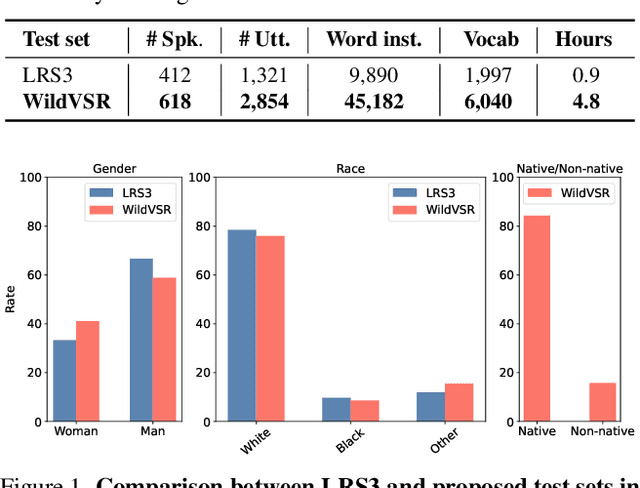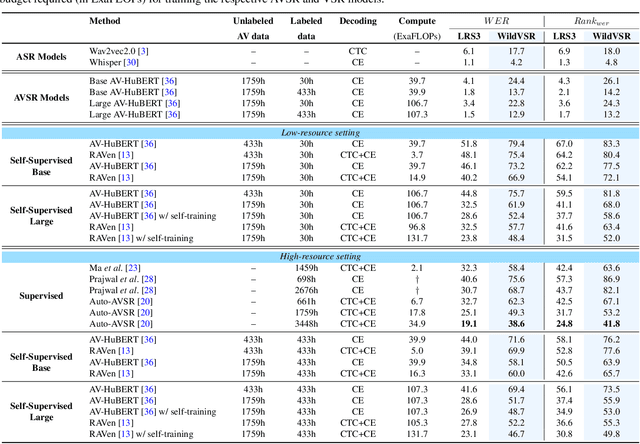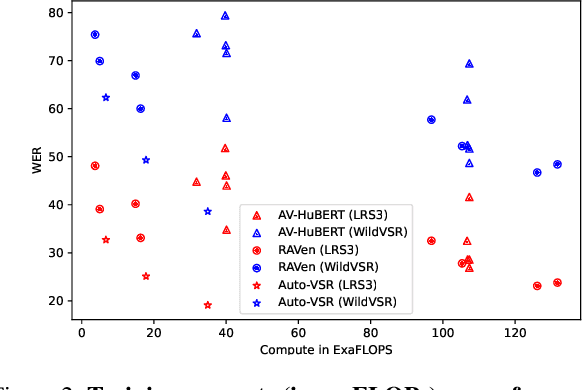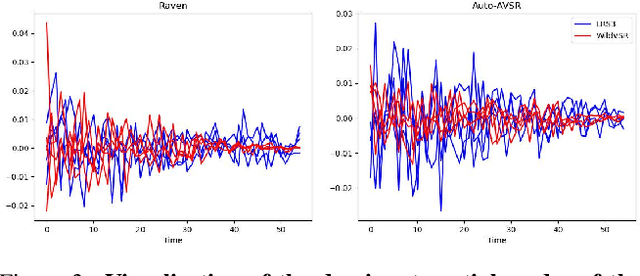Eustache Le Bihan
Open ASR Leaderboard: Towards Reproducible and Transparent Multilingual and Long-Form Speech Recognition Evaluation
Oct 08, 2025Abstract:Despite rapid progress, ASR evaluation remains saturated with short-form English, and efficiency is rarely reported. We present the Open ASR Leaderboard, a fully reproducible benchmark and interactive leaderboard comparing 60+ open-source and proprietary systems across 11 datasets, including dedicated multilingual and long-form tracks. We standardize text normalization and report both word error rate (WER) and inverse real-time factor (RTFx), enabling fair accuracy-efficiency comparisons. For English transcription, Conformer encoders paired with LLM decoders achieve the best average WER but are slower, while CTC and TDT decoders deliver much better RTFx, making them attractive for long-form and offline use. Whisper-derived encoders fine-tuned for English improve accuracy but often trade off multilingual coverage. All code and dataset loaders are open-sourced to support transparent, extensible evaluation.
ViSpeR: Multilingual Audio-Visual Speech Recognition
May 27, 2024Abstract:This work presents an extensive and detailed study on Audio-Visual Speech Recognition (AVSR) for five widely spoken languages: Chinese, Spanish, English, Arabic, and French. We have collected large-scale datasets for each language except for English, and have engaged in the training of supervised learning models. Our model, ViSpeR, is trained in a multi-lingual setting, resulting in competitive performance on newly established benchmarks for each language. The datasets and models are released to the community with an aim to serve as a foundation for triggering and feeding further research work and exploration on Audio-Visual Speech Recognition, an increasingly important area of research. Code available at \href{https://github.com/YasserdahouML/visper}{https://github.com/YasserdahouML/visper}.
Do VSR Models Generalize Beyond LRS3?
Nov 23, 2023



Abstract:The Lip Reading Sentences-3 (LRS3) benchmark has primarily been the focus of intense research in visual speech recognition (VSR) during the last few years. As a result, there is an increased risk of overfitting to its excessively used test set, which is only one hour duration. To alleviate this issue, we build a new VSR test set named WildVSR, by closely following the LRS3 dataset creation processes. We then evaluate and analyse the extent to which the current VSR models generalize to the new test data. We evaluate a broad range of publicly available VSR models and find significant drops in performance on our test set, compared to their corresponding LRS3 results. Our results suggest that the increase in word error rates is caused by the models inability to generalize to slightly harder and in the wild lip sequences than those found in the LRS3 test set. Our new test benchmark is made public in order to enable future research towards more robust VSR models.
 Add to Chrome
Add to Chrome Add to Firefox
Add to Firefox Add to Edge
Add to Edge